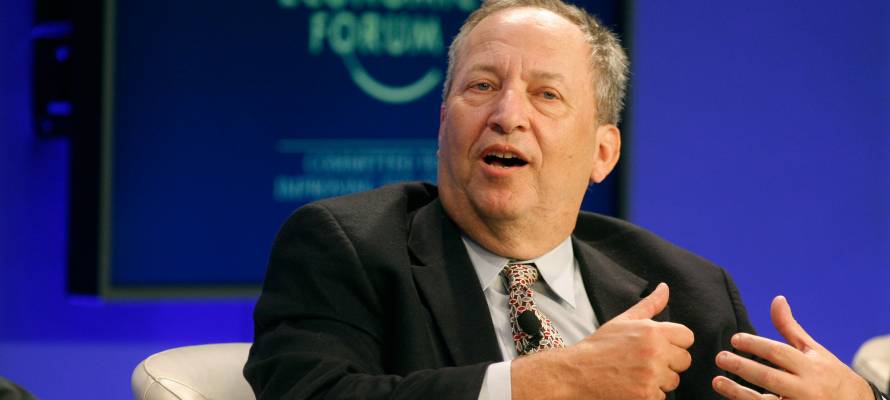Former Harvard President Larry Summers slammed recent initiatives by US academic associations to boycott Israeli universities and academics.
Discussing his own 2012 confrontation with students and faculty who sought to remove all Israeli investments from Harvard’s endowment during a comprehensive discussion with The Weekly Standard’s Bill Kristol, Former Harvard President Larry Summers warned against such a move.
“The idea that Israel should be singled out as a human rights abuser was morally insensate,” he said. “It seemed to me that there wasn’t much question that if an African country was singled out for censure and there was no clear grounds for why that African country was worse or different than a number of European or Asian countries, I had no doubt that it would be seen in many quarters as racist.”
“I chose words that were carefully selected,” he said. “I said that the proposals, if they were implemented, would be antisemitic in their effect, even if not because I believe the people who proposed them were well-intentioned if misguided, even if not antisemitic in their intent, so I said antisemitic in effect if not intent.”
Summers said it was part of his objective to be controversial. “I think many people hadn’t thought about it that carefully, and who had a general kind of progressive sense of alienation from the peace process probably just didn’t want to contemplate the possibility that they were near anti-Semitism and decided not to push the issue as hard as they might otherwise have in the face of what I had said. And certainly a number of students who if they’d had the current vocabulary would have felt they’d been the victim of microagressions in the form of feeling identified with Israel and having Israel attacked thanked me very much for what I had said and done.”
“And for a number of years afterwards the divest Israel movement [BDS] was relatively quiescent. It’s been back in force in recent years. The American Studies Association, the American Anthropological Association, a variety of academic associations have announced their intention to boycott Israeli scholars or to boycott interaction with Israeli universities and I think it’s deplorable.”
“And it matters,” he continued. “My wife visited a prominent Israeli university last winter and the person who introduced her spoke about how much this meant … They felt so stunned by the idea that they studied America and that scholars in American Studies would not come and participate in their colloquia and it had an enormous impact.”
Summers said it was “deplorable that Harvard continues to maintain its institutional membership in the ASA.”
In addition to serving as Harvard president from 2001-2006, Summers was treasury secretary in the Clinton administration and director of the National Economic Council.
Summers’ full address on the matter on Sept. 17, 2002, went as follows:
Of course academic communities should be and always will be places that allow any viewpoint to be expressed. And certainly there is much to be debated about the Middle East and much in Israel’s foreign and defense policy that can be and should be vigorously challenged.
But where anti-Semitism and views that are profoundly anti-Israeli have traditionally been the primary preserve of poorly educated right-wing populists, profoundly anti-Israel views are increasingly finding support in progressive intellectual communities.
Serious and thoughtful people are advocating and taking actions that are anti-Semitic in their effect if not their intent.
By: The Algemeiner
